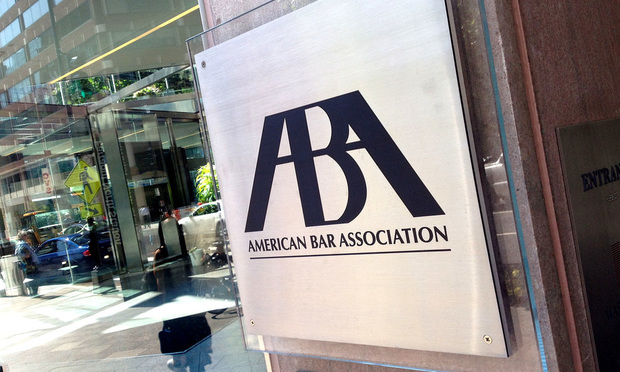The American Bar Association began mulling changes to its law school accreditation rules surrounding distance education long before COVID-19 forced all classes online this spring.
But the question of how to regulate remote learning has become particularly relevant and pressing with administrators contemplating what legal education will look like next academic year if the pandemic prevents in-person classes from resuming.
This content has been archived. It is available through our partners, LexisNexis® and Bloomberg Law.
To view this content, please continue to their sites.
Not a Lexis Subscriber?
Subscribe Now
Not a Bloomberg Law Subscriber?
Subscribe Now
LexisNexis® and Bloomberg Law are third party online distributors of the broad collection of current and archived versions of ALM's legal news publications. LexisNexis® and Bloomberg Law customers are able to access and use ALM's content, including content from the National Law Journal, The American Lawyer, Legaltech News, The New York Law Journal, and Corporate Counsel, as well as other sources of legal information.
For questions call 1-877-256-2472 or contact us at [email protected]

 Photo: Diego M. Radzinschi/ALM.
Photo: Diego M. Radzinschi/ALM.








